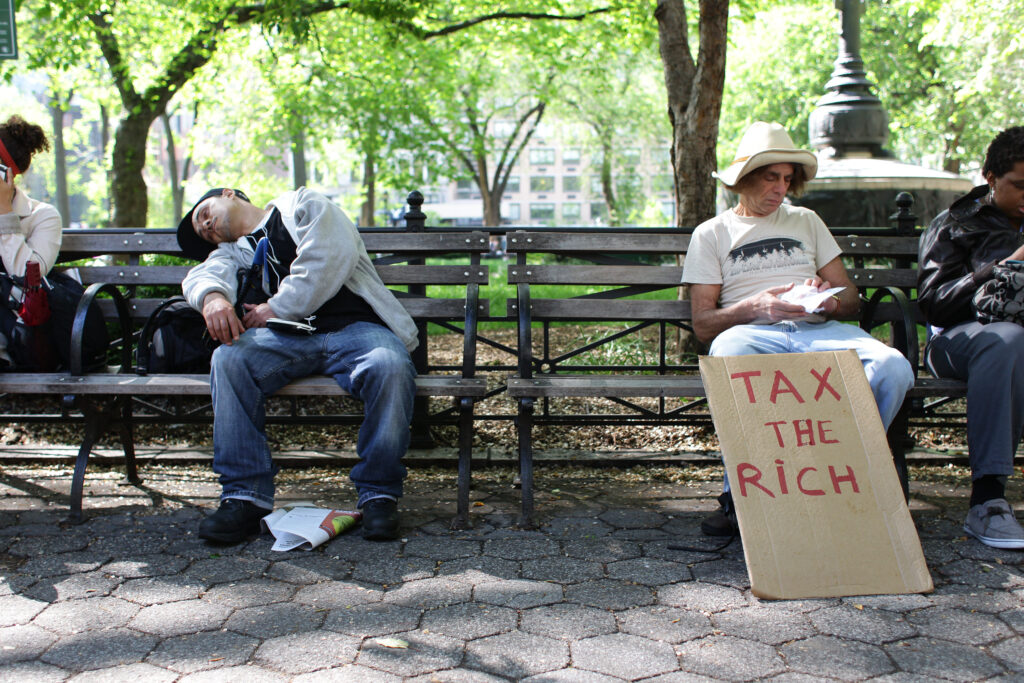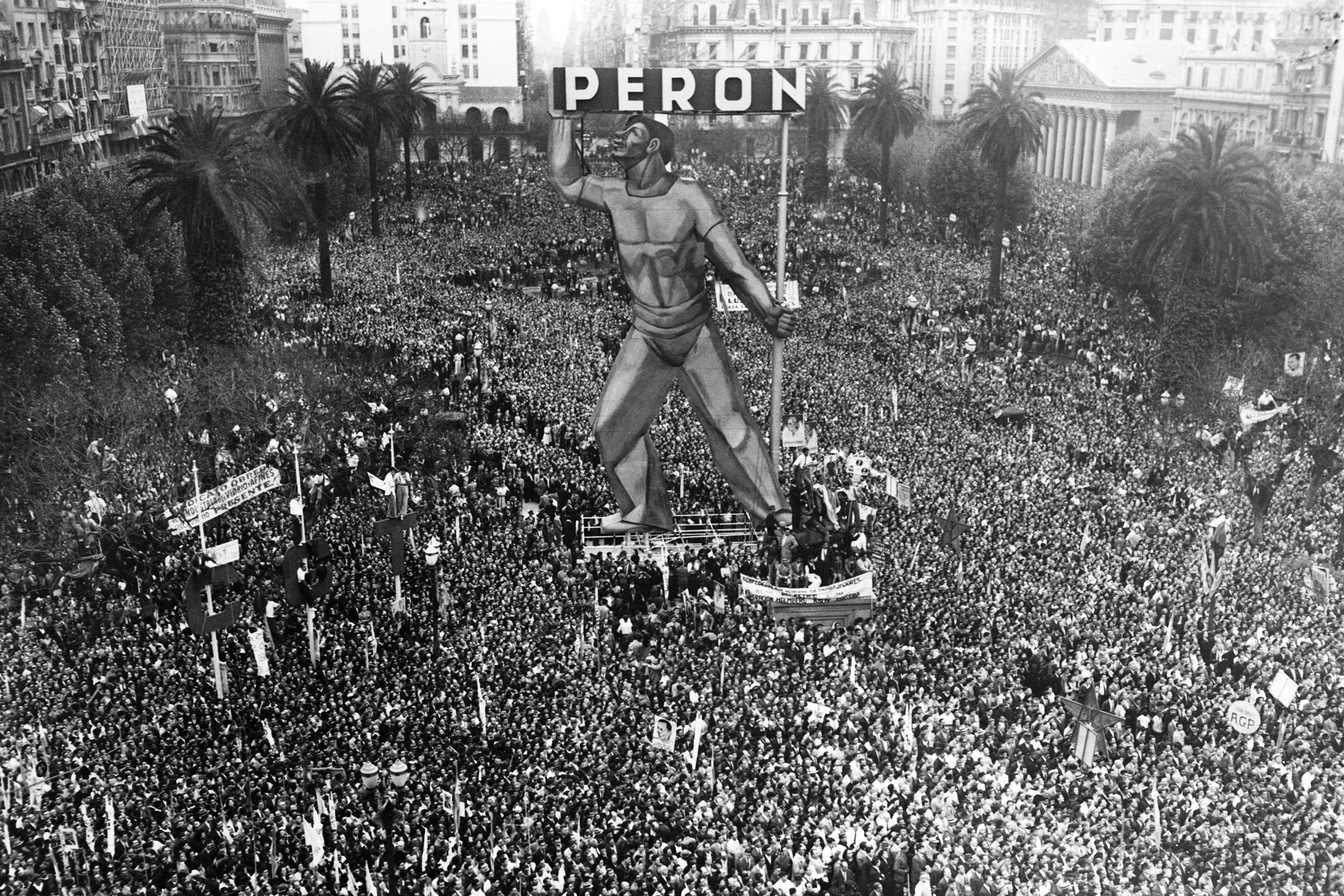Greetings Ideas Letter readers.
We are delighted this issue to feature essays by two esteemed Argentine journalists, Mario Santucho and Jordana Timerman, which explore memory, revolution, and Argentina’s turn towards the reactionary. Santucho, whose revolutionary parents were killed and disappeared in the 1970s, tries to make sense of his own history as refracted through the current political conjuncture. Timerman critically considers her own activist history via Peronism, an all-encompassing worldview (some say cosmology) that defines the fault lines of Argentina’s past and present. Jorge Luis Borges hovers over both pieces, Santucho’s explicitly.
Musa al-Gharbi, whose new book Gary Younge critically appraised in our last issue, offers a defense of his sociological analysis, especially how one thinks about the so-called woke.
We then have a few other responses stemming from Nicholas Bequelin’s formidable essay published in Issue 32 on the state of the human rights movement. Bequelin himself responds to LuHan Gabel and then Aryeh Neier responds to all.
Our curated content kicks off with an essay about the DRC and what many miss in this complicated country because of analytical blinders. With the horrors unfolding in eastern DRC today, enhanced analytical chops are indeed crucial.
We follow with the Guerrilla Podcast’s spirited discussion of how South Africans apprehend their role and commitments as a BRICs founder. Narnia Bohler-Muller, a South African law professor, walks us through how South Africa understands its country’s positioning globally and at home.
Next up is a tour d’horizon of Jamaica, specifically the Jamaica under the once heroic leadership of Michael Manley. Commemorating his centenary, Phenomenal World has an interview with Anthony Bogues of Brown University who knew Manley well.
Last, the brilliant philosopher Gillian Rose, who tragically left us far too young in 1995, is having a renaissance with the republication of a few of her classic works. In this Jacobin essay by Robert Lucas Scott, Rose’s work is assayed with an eye towards its relevance for today’s battered global left.
Our musical selection for Ideas Letter 34 is, naturally, an Argentine. Before he sold out (cashed in?), Gato Barbieri was an exceptional, adventurous tenor player who powerfully integrated free jazz with Latin and Brazilian influences. Here is “Zelao” from Barbieri’s 1970 record, The Third World.
—Leonard Benardo, senior vice president at the Open Society Foundations
Of Revolutionaries and Victims

Mario Santucho
The Ideas Letter
Essay
Argentina’s shift from celebrating revolutionary heroism to embracing a culture of victimhood has weakened its collective capacity for political resistance. By reassessing the legacy of past revolutionaries, Santucho advocates for a renewed spirit of commitment and sacrifice, arguing that social change requires moving beyond victimization in order to reclaim the courage that drives collective action.
“The unresolved questions of the past are emerging today as burning dilemmas. There were very worthy ways to heal the wounds caused by genocide, even the most painful ones. None of them consisted of accepting the comfortable role of victim that the cynical democracies that actually exist today are now offering us. We must look the truth in the face, especially when it is bitter, knowing that there is no possible reparation. Because our only revenge is to be happy. And collective happiness can only be achieved through an incessant struggle, which at some point becomes a fight. As in the here and now.”
Peronism Now

Jordana Timerman
The Ideas Letter
Essay
Peronism has dominated Argentine politics for 80 years because of its advocacy for social justice and working-class rights. The country’s political history since the return to democracy in 1983 suggests it is the only party capable of governing Argentina’s complex political landscape. Today the movement is in crisis—divided, ideologically outdated, and struggling to recover from its electoral defeat by outsider Javier Milei, whose popularity endures despite the social costs of his austerity policies. But Peronism is extraordinarily resilient. The movement can be reinvented as a champion of social justice for a new generation.
“Argentina is a country of frequent and spectacular crises, and during those the people express their adherence or anger, their joy or sorrow publicly, in marches, protests, rallies, banging pots and honking car horns. The streets are palimpsests of our political struggles. Which is why in 2025, as Milei hacks away at hard-won rights with a budget-slashing chainsaw, I look to those 14 blocks in central Buenos Aires to understand how we Argentines will define ourselves in this struggle. For I am a Peronist and, if the party is to survive this crisis, too, its agenda will have to come, once again, from these streets.”
Undefining Woke
A response to Gary Younge

Musa al-Gharbi
The Ideas Letter
Essay
Musa al-Gharbi replies to Gary Younge’s review of his book, “We Have Never Been Woke,” published in The Ideas Letter Issue 32. Al-Gharbi argues that Younge’s focus on defining “wokeness” misses the more important issue: how different stakeholders use and contest the term. He also challenges Younge’s emphasis on billionaires as the primary powerholders, instead highlighting how “symbolic capitalists”—professionals in media, law, and academia—wield significant influence in shaping politics, culture, and public discourse.
“One of the main reasons symbolic capitalists are ineffective in this specific domain is because we almost exclusively try to pursue social justice goals in ways that don’t entail any meaningful risks, costs or lifestyle changes for people like ourselves. This is because, while we’re sincerely committed to egalitarianism on the one hand, we’re also sincerely committed to being elites on the other: we think our perspectives and priorities should count for more than the folks checking us out at the grocery store; we think we should enjoy a higher standard of living than the folks delivering our packages; we want our children and partners to reproduce or exceed our own position. This set of drives is in fundamental tension with our commitments to social justice. After all, you can’t really be an egalitarian social climber. It’s a contradiction in terms.”
In DR Congo, a Western vision perpetuates violence
Christoph Vogel and Aymar Nyenyezi Bisoka
Afrique XXI
Essay
Western narratives, whether progressive or reactionary, perpetuate a vision of the Democratic Republic of the Congo that reduces the country to a passive recipient of foreign policies, erasing its political agency and reinforcing justifications for interventionism under the guise of stability and development. This simplification obscures the complexities of Congolese politics, resource struggles, and conflicts, ultimately serving to uphold neocolonial power structures.
“… Notions of peace and peacebuilding are tainted by Western military adventures in countries such as Afghanistan or Iraq. The term ‘instability’ is often used in an essentialist way, to define a problematic Other. Yet, under what premises can we consider the governance of countries such as Belgium, a state characterized by strong political inertia, or recent political developments in the United States as examples of ‘stability,’ unless ‘instability’ is simply defined as anything that differs from the reality of the so-called ‘Northern’ countries?”
BRICS – A View from South Africa
A View from South Africa
Narnia Bohler-Muller
Guerrilla History
Podcast
South Africa’s role in BRICS reflects both its historical struggle against injustice and its pursuit of a more multipolar world order that challenges Western hegemony. Despite ideological differences among BRICS member countries, their shared goal of reshaping global power dynamics through trade, mutual respect, and economic cooperation unites them in seeking an alternative to the dominance of the Global North.
“And I think the more that the West kicks back at change, doesn’t want to change, the more countries that have been left on the peripheries want to push for change. So that’s why there’s a queue going out the door and down the street of countries that want to join BRICS.”
Decolonizing Jamaica
An interview with Professor Anthony Bogues on Michael Manley’s centenary
Will Kendall and Neil Warner
Phenomenal World
Essay
Bogues reflects on the legacy of Jamaican political leader Michael Manley, highlighting his role in Jamaica’s labor movement, efforts to decolonize the economy, and advocacy on global issues like the US embargo on Cuba and the IMF. He emphasizes the generational responsibility to reimagine democratic socialism in Jamaica, while expressing hope for a unified Caribbean.
“Manley realized that even though countries like Jamaica had gained constitutional independence, they remained wedded to a world economy structured by colonialism—what people like Kwame Nkrumah would call “neo-colonialism.” Transforming the world economy depended on altering price setting mechanisms and developing technological and energy independence. We grow the commodities, but we don’t set the prices and we rely on importing machinery and oil to process them. Because he was deeply invested in political and economic democracy, Manley was also very concerned with the rise of multinational corporations.”
Gillian Rose’s Philosophy Works Through The Left’s Failures
Robert Lucas Scott
Jacobin
Essay
The philosophy of Gillian Rose’s urges the Left to confront its seemingly endless failures by accepting the setbacks but never final defeat. Rose emphasized that acknowledging mistakes is essential for meaningful progress. By critically reinterpreting Marx and Hegel, she argues that political and philosophical thought must grapple with contradictions without retreating into dogma or abstraction, fostering a more resilient and self-aware pursuit of social justice. “Keep your mind in hell,” she once wrote, “and despair not.”
“Our time is one of disappointment and disarray — and this is why Gillian Rose may be the philosopher the Left needs. If her thought could be summed up in a phrase, it might be: concede the difficulty, but not final defeat. Or, in the words of the epigraph to her 1995 memoir Love’s Work: ‘Keep your mind in hell, and despair not.’ Whether in politics, philosophy, love, or life itself, when things go wrong or get tough it may be tempting to give up, escape, or else simply deny the problem. For Rose, however, it is only by confronting difficulty and failure head-on and learning from it — by keeping your mind in hell — that moving forward might be possible. In the words of the philosopher G. W. F. Hegel, her most consistent ally: ‘The fear of error is the error itself.’”
